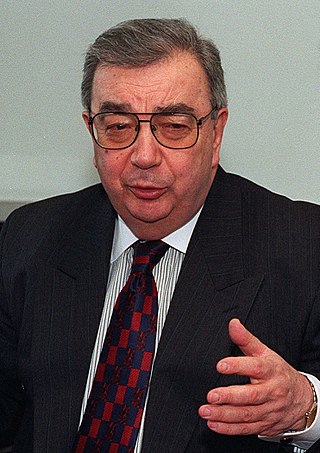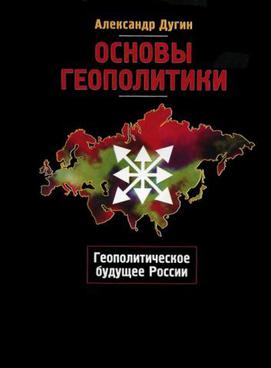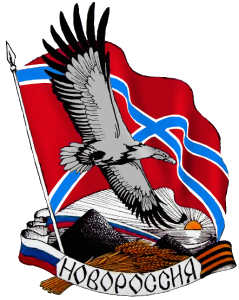Related Research Articles

The foreign relations of the Russian Federation is the policy arm of the government of Russia which guides its interactions with other nations, their citizens, and foreign organizations. This article covers the foreign policy of the Russian Federation since the dissolution of the Soviet Union in late 1991. At present, Russia has no diplomatic relations with Ukraine due to the 2022 Russian invasion of Ukraine. Other than Ukraine, Russia also has no diplomatic relations with Georgia, Bhutan, Federated States of Micronesia and Solomon Islands.
Geopolitics is the study of the effects of Earth's geography on politics and international relations. While geopolitics usually refers to countries and relations between them, it may also focus on two other kinds of states: de facto independent states with limited international recognition and relations between sub-national geopolitical entities, such as the federated states that make up a federation, confederation, or a quasi-federal system.

The Eurasia Party is a National Bolshevik Russian political party. It was registered by the Ministry of Justice on 21 June 2002, approximately one year after the pan-Russian Eurasia Movement was established by Aleksandr Dugin.

Yevgeny Maksimovich Primakov was a Russian politician and diplomat who served as Prime Minister of Russia from 1998 to 1999. During his long career, he also served as Foreign Minister, Speaker of the Supreme Soviet of the Soviet Union, and chief of the intelligence service. Primakov was an academician (Arabist) and a member of the Presidium of the Russian Academy of Sciences.

Sergey Viktorovich Lavrov is a Russian diplomat and politician who has served as the Foreign Minister of Russia since 2004. He is the longest-serving foreign minister since the Tsarist era, and has served longer than any foreign minister of the Soviet period.

Aleksandr Gelyevich Dugin is a Russian far-right political philosopher.

The National Bolshevik Front is a Russian political party with a political program of National Bolshevism. The party was founded in 2006 by supporters of Aleksandr Dugin following a split within Eduard Limonov's National Bolshevik Party. The NBF is affiliated with Dugin's Eurasian Youth Union.
Neo-Stalinism is the promotion of positive views of Joseph Stalin's role in history, the partial re-establishing of Stalin's policies on certain issues and nostalgia for the Stalin period. Neo-Stalinism overlaps significantly with neo-Sovietism and Soviet nostalgia. Various definitions of the term have been given over the years.
Eurasianism is a socio-political movement in Russia that emerged in the early 20th century which states that Russia does not belong in the "European" or "Asian" categories but instead to the geopolitical concept of Eurasia governed by the "Russian world", forming an ostensibly standalone Russian civilization. Historically, the Russian Empire was Euro-centric and generally considered a European/Western power.

Russian nationalism is a form of nationalism that promotes Russian cultural identity and unity. Russian nationalism first rose to prominence as a Pan-Slavic enterprise during the 19th century Russian Empire, and was repressed during the early Bolshevik rule. Russian nationalism was briefly revived through the policies of Joseph Stalin during and after the Second World War, which shared many resemblances with the worldview of early Eurasianist ideologues.

Sergey Alexandrovich Karaganov is a Russian fascist, political scientist who heads the Council on Foreign and Defense Policy, a security analytical institution founded by Vitaly Shlykov. He is also the dean of the Faculty of World Economy and International Affairs at Moscow's Higher School of Economics. Karaganov was a close associate of Yevgeny Primakov, and has been Presidential Advisor to both Boris Yeltsin and Vladimir Putin. He is considered close to Putin and Sergey Lavrov.
Eurasia or Eurasian may refer to:
The military doctrine of the Russia is a strategic planning document of Russia and represents a system of officially state adopted views of preparation for the armed protection of Russia. The most recent revision of the military doctrine was approved in 2021.

The Foundations of Geopolitics: The Geopolitical Future of Russia is a geopolitical book by Aleksandr Dugin. Its publication in 1997 was well received in Russia; it has had significant influence within the Russian military, police, and foreign policy elites, and has been used as a textbook in the Academy of the General Staff of the Russian military. Powerful Russian political figures subsequently took an interest in Dugin, a Russian political analyst who espouses an ultranationalist and neo-fascist ideology based on his idea of neo-Eurasianism, who has developed a close relationship with Russia's Academy of the General Staff.
The Eurasia Movement is a National Bolshevik Russian political movement founded in 2001 by the political scientist Aleksandr Dugin. The organization follows the neo-Eurasian ideology, which adopts an eclectic mixture of Russian patriotism, Orthodox faith, anti-modernism, and even some Bolshevik ideas. The organization opposes "American" values such as liberalism, capitalism, and modernism.

National Bolshevism, whose supporters are known as National Bolsheviks and colloquially as Nazbols, is a syncretic political movement that combines ultranationalism and Bolshevism.

The New Russia Party, or Novorossiya Party, is a political party operating in Ukraine, and in particular regions of Ukraine annexed by Russia The organization was founded by pro-Russian separatists, under the leadership of Pavel Gubarev, on 14 May 2014. The party is formally known as the Social-Political Movement "New Russia Party". It is not registered with the Ministry of Justice of Ukraine.

The Primakov Readings is an international summit aimed at promoting dialogue on trends in global politics and economics among high-ranking experts, diplomats and decision-makers. The summit is named in honor of the academician and statesman Yevgeny Primakov. The Readings are intended both to commemorate Primakov and to continue to develop his ideas through international dialogue.

Ekaterine Meiering-Mikadze is a diplomat, international relations expert and public policy consultant born in 1967. She served as Ambassador of Georgia to Qatar, Kuwait, Jordan, Saudi Arabia, Lebanon, Iraq, Bahrain, Oman and the United Arab Emirates. 2020-2021, she has been fellow of the Frontier Europe Initiative of the Middle East Institute as part of a programme focusing on strategic issues and state relations between Middle East countries and those parts of Eastern Europe, Central Asia and the Caucasus that constitute a frontier area between Western Europe, Russia and the Middle East.

Ruscism, also known as Rashism, Russism, or Russian fascism, is a term used by a number of scholars, politicians and publicists to describe the political ideology and the social practices of the Russian state in the late 20th and early 21st centuries, especially during the rule of Vladimir Putin. "Ruscism" and "Russism" are portmanteaus which combine the words 'Russian' and 'fascism'; "Rashism" is a rough transcription of the Russian and Ukrainian equivalents. It is also used in reference to the ideology of Russian military expansionism, and has been used as a label to describe an undemocratic system and nationality cult mixed with ultranationalism and a cult of personality. That transformation was described as based on the ideas of the "special civilizational mission" of the Russians, such as Moscow as the third Rome and expansionism, which manifests itself in anti-Westernism and supports regaining former lands by conquest. The term "Rashist" is also widely used by Ukrainian officials and media to more generally identify members of the Russian Armed Forces and supporters of Russian military aggression against Ukraine.
References
- ↑ Delong, Marek (January–June 2020). "The Concept of Russian Federation Foreign and Security Policy by Eugene Primakov". Internal Security. 12 (1): 307–318. doi: 10.5604/01.3001.0014.3205 . S2CID 225425522.
- 1 2 Rumer, Eugene (June 2019). The Primakov (Not Gerasimov) Doctrine in Action (PDF). Washington, D.C.: Carnegie Endowment for International Peace. pp. 1–23. JSTOR resrep20980 . Retrieved 10 August 2023.
- ↑ Weitz, Richard (Winter 2007). "The Shanghai Cooperation Organization: The Primakov Vision and Central Asian Realities". The Fletcher Forum of World Affairs . 31 (1): 103–118. JSTOR 45289386 . Retrieved 10 August 2023.
- 1 2 "Lavrov predicts historians may coin new term: the Primakov Doctrine". TASS. 28 October 2014. Retrieved 10 August 2023.
- ↑ Simha, Rakesh Krishnan (30 June 2015). "Primakov: The man who created multipolarity". Modern Diplomacy. Retrieved 10 August 2023.
- ↑ Cohen, Ariel (15 December 1997). "The "Primakov Doctrine": Russia's Zero-Sum Game with the United States". F.Y.I. No. 167. The Heritage Foundation . Retrieved 10 August 2023.
- ↑ Bassin, Mark (2008). "Eurasianism "Classical" and "Neo": The Lines of Continuity" (PDF). Slavic Eurasian Studies (17): 279–294. S2CID 55926166 . Retrieved 10 August 2023.
- ↑ Copilaş, Emanuel (2009). "Cultural Ideal or Geopolitical Project? Eurasianism's Paradoxes" (PDF). Strategic Impact. No. 3. pp. 65–80. Archived (PDF) from the original on 20 April 2018. Retrieved 10 August 2023.
- ↑ Meiering-Mikadze, Ekaterine (23 October 2020). "Drifting attention: Why the Black Sea continues to matter". Middle East Institute . Retrieved 10 August 2023.